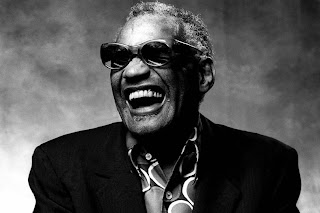Directed by Simon Curtis
Written by Adrian Hodges
The world knows Marilyn Monroe for her legend: the voluptuous blonde bombshell that had Hollywood
When Michelle Williams was cast as Marilyn Monroe Hollywood history is a risky move, to be sure. Fortunately or unfortunately for Williams, it was a career-making role in an otherwise forgettable film.
Williams is a believable Marilyn and a gifted actress, if not a classic beauty. She brings mystifying childlikeness and the frailty of a porcelain doll to the power-house sex symbol, but there is no denying she is a confusing choice (one of many head-scratchers in the casting department). Her body, padded into an hourglass shape, is hugely out of proportion and, aside from her dewy white skin, blue eyes, and blonde hair, there is little likeness to Marilyn at all. Sure, it may be an impossible challenge for a casting director, but perhaps a better choice might have been a new face – an undiscovered talent whose freshness and novelty might have added a sense of wonder and curiosity. But in these economic times: no star, no budget, no movie.
To say the film is about Marilyn Monroe is slightly misleading. Though Marilyn hovers over the film like an angel or a myth, and is undeniably part of the plotline, the film is predominantly about the youthful fantasy-come-true of the fresh and freckled Colin Clark (Eddie Redmayne). Clark, who runs away from a distinguished family to “join the circus” of the film industry, joining the crew of Laurence Olivier’s latest film The Prince and the Showgirl, is played with easy likability. He is uncomplicated, full of youthful energy, charming determination, and heavy innocence. But for all his sweetness, Colin lacks the emotional complexity required to make him relatable. The simplification of his youth is appealing at times, asking the audience to oo and ahh over him without finding any true empathy. When Marilyn does take interest in the boy (it is difficult to believe he is all of 23 years old), it seems highly unlikely, which may be part of the appeal.
Colin’s relationship with Marilyn helps to make him indispensable on set. Sir Laurence Olivier (Kenneth Branagh), another victim of poor casting, uses Clark as a tool to help the self-indulgent Marilyn make it to work on time, or at all. Olivier, commander in chief of the film production, as well as Marilyn’s on-screen love interest, is done justice by Branagh inasmuch as he physically and verbally recalls the him, but Branagh’s general roundness has nothing to do with Olivier’s still-chiseled features, which made him one of the most handsome men to have lived. Still, Branagh’s performance is a source of power in the film and, despite it being an occasionally chauvinistic power, the film begs for it.
As Marilyn’s faulty new marriage to playwright Arthur Miller dissolves, her connection to Colin Clark deepens. They begin their off-set romance, consisting of simple, innocent outings, and pleasant conversations. The scenes of Marilyn without make-up, barefoot, or naked in the bathtub, do very little to humanize the mega-star. Although Williams gives her an impressive vulnerability, she is always seen behind the veil of her façade, even if it is transparent. Low angle shots of men watching Marilyn on camera help to solidify her as un-human, or perpetuate her as a myth. The result is a charming, simple film about the realization of a school-boy crush.
























































